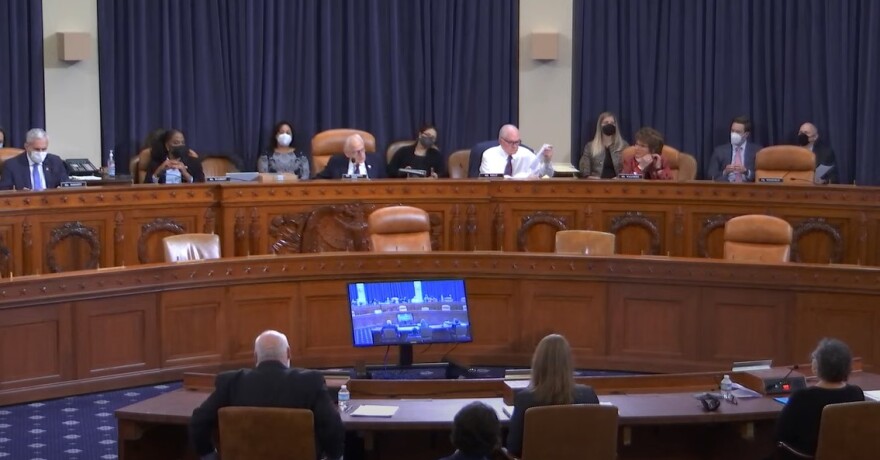Democratic U.S. representatives want changes to the trust industry after the Pandora Papers revealed some South Dakota-based trusts are holding money for clients accused of crime, corruption and human-rights abuses.
"We will explore how these states and South Dakota have become the Grand Cayman of the Great Plains," said Rep. Bill Pascrell, D-New Jersey. "Letting this accumulation of hidden wealth go unchecked will only exacerbate our two-tier tax system. I will not be complicit in further cementing a have and have-not economy."
The Oversight Subcommittee of the House Ways and Means Committee met Wednesday after President Joe Biden released his plan to fight financial corruption. The plan says trust companies should face more scrutiny.
South Dakota Gov. Kristi Noem was invited to testify but said she had a prior commitment. She was a member of the Ways and Means Committee when she was in Congress.
Noem's office did not respond to an email asking what her prior commitment was and whether she thinks the trust industry needs reforms.
The Pandora Papers is the name of the trove of leaked trust documents obtained by The Washington Post and International Consortium of Investigative Journalists. The documents and reporting show how the trust industry serves the ultrawealthy and current and former politicians, including some accused of crimes or other wrongdoing.
Committee Republicans had a different takeaway from the Pandora Papers.
Rep. Lloyd Smucker, R-Pennsylvania, said the Pandora Papers and other leaks highlight concerns about taxpayer data privacy.
"Instead of a hearing about the leak, the information is being used for political purposes," Smucker said. "It plays into the Democrat narrative — which is absolutely false — that wealthy taxpayers cheat and that they don't pay enough in taxes."
Smucker and fellow Pennsylvania Republican Rep. Mike Kelly noted that trusts aren't just for the mega-rich and powerful.
“I worry that the majority wants to go after trusts in the U.S. generally through massive reporting regimes and new regulations," Kelly said. "But farmers, small businesses and millions of average Americans use trusts to plan for the future.”
The hearing included testimony from two professors and a leader from the nonpartisan Financial Accountability and Corporate Transparency Coalition.
All three argued that tax-haven states bring few benefits to their citizens while leading to tax evasion and cover for bad actors.
A senior fellow from the Heritage Foundation, a conservative think tank, testified that financial and personal privacy must be protected.
Noem has said little about the Pandora Papers. She has shared a quote from a Wall Street Journal editorial, which noted that the Washington Post explained there was no evidence that trusts sheltered criminal proceeds.
"Too often the headlines tell you what you want to believe," Noem wrote about the editorial, which was titled "Smearing South Dakota."
Too often the headlines tell you what you want to believe. I appreciate the Wall Street Journal for pointing out the part of the story that didn’t make it into the headlines on this issue. pic.twitter.com/HfYQ1r7E9u
— Governor Kristi Noem (@govkristinoem) October 26, 2021
Meanwhile, a watchdog group called Citizens for Responsibility and Ethics in Washington wants more information from Noem.
The group filed a public records request for documents showing any communication between Noem, South Dakota's trust task force, and Trident Trust.
Financial experts told The Washington Post that the industry needs more oversight and should not only focus on clients convicted of crimes, but those with credible accusations of wrongdoing.
That might happen if Congress passes the Enablers Act. The bipartisan bill would make trust companies investigate foreign clients hoping to store money and assets in the United States.





